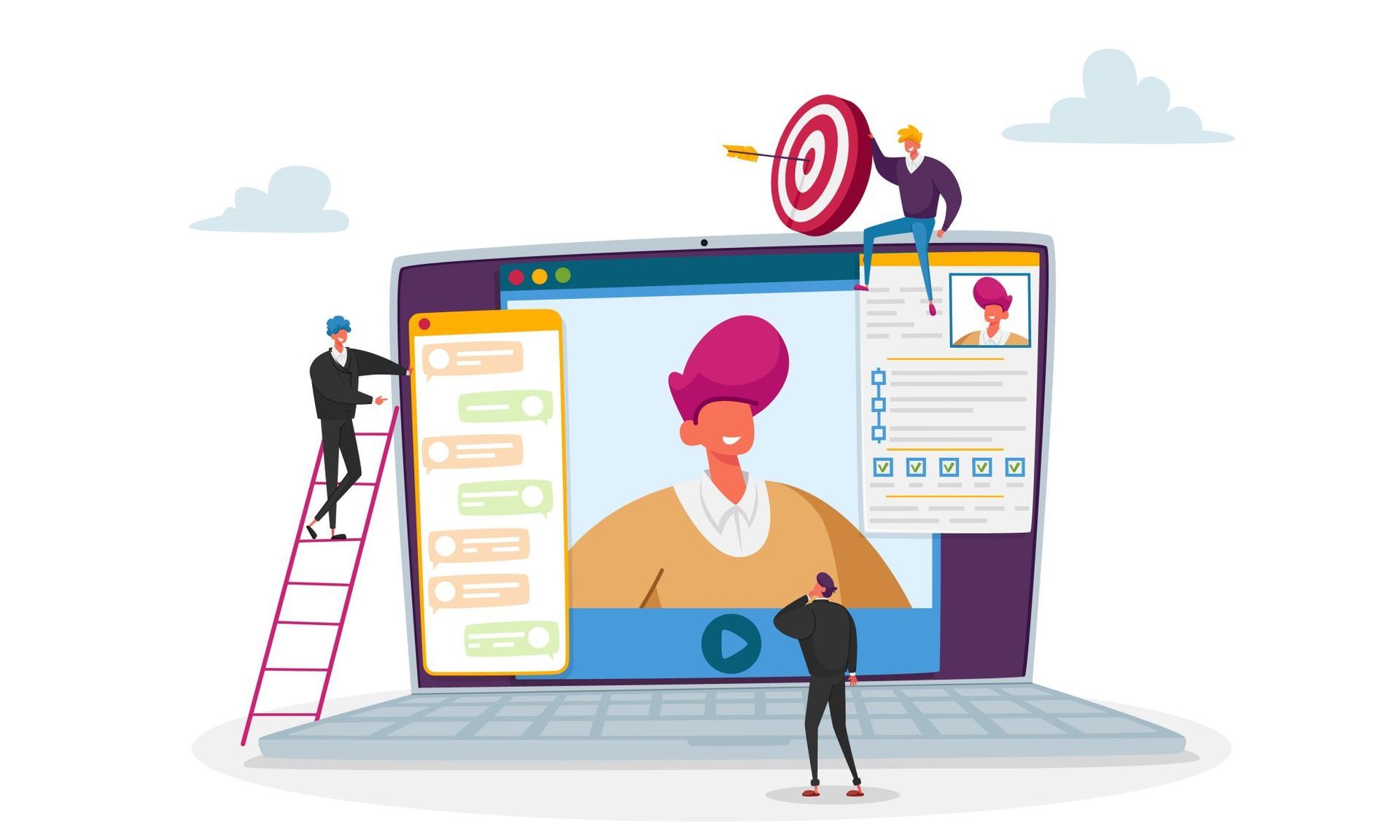10 tips to master virtual interviews
Covid-19, as we all know, has completely changed the game in many aspects of people’s working lives. More specifically, it’s no secret that in recent years a massively increasing number of interviews and meetings had to shift to a virtual setting to make sure everyone involved would be safe. We have all been in countless meetings both internal and external to our working lives over the years. Whether they relate to a professional environment, personal get togethers, or even parents evenings, we have all been exposed to meetings but for the most part on a face to face basis. However, we have all had video calls with friends and family or even with a manager attending a conference. The reality of this shift is that we have all had to adopt the new virtual standard imposed by the pandemic’s consequences in a very reactive manner. Of course, job interviews were and still are far from exempt from this paradigm shift.
The problem that lies with this is that many candidates, whilst potentially well versed in the art of face to face interviews, are perhaps not so used to attending interviews virtually. Furthermore, even though we have come out of the pandemic and no longer have restrictions on face-to-face interactions, virtual interviews have become a standard for many companies and industries. So, we thought we would give you a few tips and tricks on how to feel comfortable and on top of your game during your next virtual interview.

1. First impressions matter
Interviews, unlike a lot of virtual meetings, are a one off chance to make a lasting first impression which could positively change your life – or at least your career. Because of the ubiquitous nature of these calls and encounters, the importance of an interview can be lost in familiarity.
2. Dress to impress
Think about your outfit and attire; would you wear this if the interview were taking place at the business’ headquarters where you would meet with a multinational’s CEO? At the risk of sounding cliché, it is always better to overdress rather than underdress. It shows the interviewer that you care, even if you’re sat at home.
3. Check your virtual background
Is your virtual Teams or Zoom background appropriate or is it still set to that goofy aquarium effect from the last time you had a virtual drink with your friends? In essence, this comes down to simply being prepared before joining the interview and checking your settings.
4. Tidy up your real background
Is your real background neat and tidy? Remember, neat and tidy doesn’t necessarily mean plain white or bland. It can very much highlight your personality, especially if the company’s “vibe” is similar to yours, as long as it’s not overdone and tasteful (maybe take down your Metallica posters though).
5. Make sure you will not be disturbed
Are you likely to be disturbed? We have all seen this video of this consultant appearing on national television from his home office set up and his kids barging in only to be swept away by the other adult in the house. As funny and good natured as this was, let’s make sure something like this doesn’t happen to you and avoid the embarrassing blushing that will inevitably ensue. Make sure to let anyone else in the property that you have an interview lined up at a particular hour in the room you choose to set up shop in. Even a do not disturb sign on the door should do the trick!
6. Know your tech
Do you know the technology well enough? Let’s face it, there’s nothing more annoying than malfunctioning tech, especially in such an important setting. Dropping a call due to an unreliable internet connection or being unable to use the software properly during an interview can hinder your chances of getting the role due to appearing potentially unprepared.
7. Test your tech
By extension; always test the tech! Before you hop onto the interview call, make sure that you have a reliable internet connection, functioning webcam, decent speakers, a good mic, etc. All of which should be standard in any modern laptop.
8. Display your real full name
Is your correct full name listed on the video conference software? Make sure that your full name is being displayed rather than a nickname. This small detail does show to the hiring team that you are professional and separate your personal life to your working life.
9. Watch your body language
This is just as relevant for video interviews as it is for any face-to-face interview. Your body language is an indicator of many different factors such as confidence, intent, and presence. Use it to help communicate what you want to say; frame yourself properly, adopt a good posture, smile, use your hands, all of the things you would naturally do in a face-to-face interview.
10. Do your research
Just like any interview whether this be face-to-face or virtual, you should know what the company you’re applying to does, their values, products/services, etc. as well as the role you’re applying to; what would be expected of you, how you match the required skills, etc. The good thing about virtual interviews however, is that you can have some Post-It notes set around your screen which can act as prompts without the interviewer being aware of them.

Key takeaways
Overall it’s important to remember that even though virtual interviews seem and feel different to traditional on-site interviews, good practice remains very similar in both instances. It never hurt anyone to be prepared. Arguably, virtual interviews can be seen as easier than face-to-face ones as there seems to be less pressure due to being able to remain in a comfortable setting during the interview i.e: your home. However, some elements might be trickier in a virtual interview due to their intangible nature; it’s arguably harder to make a lasting positive impression on interviewers when attending remotely as there is limited human contact between the parties. Overall, remember preparation is key and take an interview as being a conversation. If they offered you an interview, this means they are already interested in you on paper, now it’s just a matter of figuring out whether you as a person fit in their idea of the role and organization. So be natural, be yourself, and don’t put too much pressure on yourself, just have a conversation like you would in other settings and you’ll be just fine.
Get in touch!
At ASC Connections, we make a point to help every candidate to feel as prepared and comfortable as possible for any interview as we know how much of a big deal they can be. Feel free to get in touch with us either via email or give us a call on 0121 236 1662 and ask us for any tips or advice regarding your next career move!

Randy Lamotte is the Head of Marketing for ASC Connections. His love for creative endeavours such as writing and music began when he was only young. Through his current role, he loves to create and share content to help candidates find the best roles tailored to them, and for clients to find talented individuals to suit their needs.
SHARE BLOG


